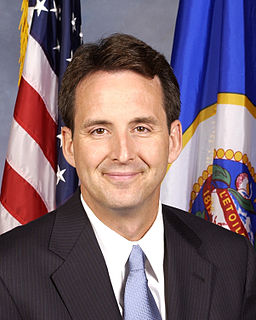A Quote by Martin Feldstein
The good news is that a competitive dollar in the global market and a strong dollar at home are compatible in both the long run and during the transition to a more competitive dollar.
Quote Topics
Related Quotes
Weaker currencies abroad mean a strong dollar, and a stronger dollar, together with a weak global environment, is a drag on the U.S. economy. So it's important, as it affects overall levels of production and employment in the U.S. There are many domestic industries doing well in the United States, notwithstanding a strong dollar.
The value of a dollar is to buy just things; a dollar goes on increasing in value with all the genius and all the virtue of the world. A dollar in a university is worth more than a dollar in a jail; in a temperate, schooled, law-abiding community than in some sink of crime, where dice, knives, and arsenic are in constant play.
Back in 1960, the paper dollar and the silver dollar both were the same value. They circulated next to each other. Today? The paper dollar has lost 95% of its value, while the silver dollar is worth $34, and produced a 2-3 times rise in real value. Since we left the gold standard in 1971, both gold and silver have become superior inflation hedges.
No one has yet convinced me a dollar stranded overseas is better than a dollar brought back home here to America for any reasons. So, if a company needs it, whether it's to do research, buy another business in America, grow jobs or try to become more financially strong, that is good for the United States.
I am concerned about the erraticness of the dollar. The dollar is up, the dollar is down. We print a lot of dollars. The dollar gets devalued. That is really the concern. If people think the gold price up and down is a reflection of something wrong with gold, no - I say it is something wrong with the dollar.

































